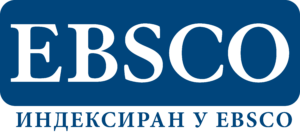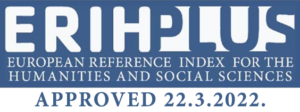
ЗБОРНИК РАДОВА Педагошког факултета у Ужицу
ISSN (Штампано издање): 2560-550Х
ISSN (Online): 2683-5649
Издавач: Педагошки факултет у Ужицу, Универзитет у Крагујевцу
Адреса: Трг Светог Саве 36, 31000 Ужице, Србија
Рукописи се достављају искључиво преко софтвера за електронско уређивање часописа Assistent – https://aseestant.ceon.rs/index.php/zrpfu/login
Зборник радова Педагошког факултета у Ужицу је научни академски часопис са рецензијом. У часопису су заступљене теме наука и научних дисциплина које обрађују и проучавају васпитање, образовање и наставу у области предшколског васпитања, основношколског и средњошколског образовања и васпитања као и универзитетског и целоживотног образовања и тиме дају допринос унапређивању и развоју тих процеса. У часопису се објављују научни чланци (изворни научни чланци, прегледни научни чланци), кратки научни чланци и стручни чланци.
Часопис има традицију дугу више од две деценије.
Часопис излази једном годишње.
Радови се рецензирају.
Категоризацијом домаћих часописа за 2023. годину, Зборник радова Педагошког факултета, Ужице је у категорији М23.



